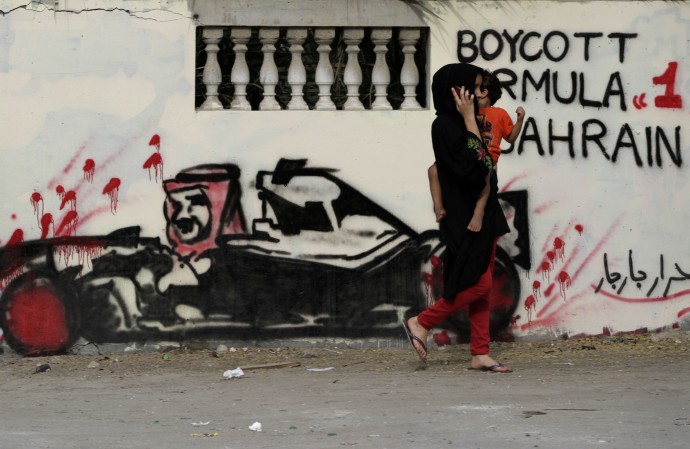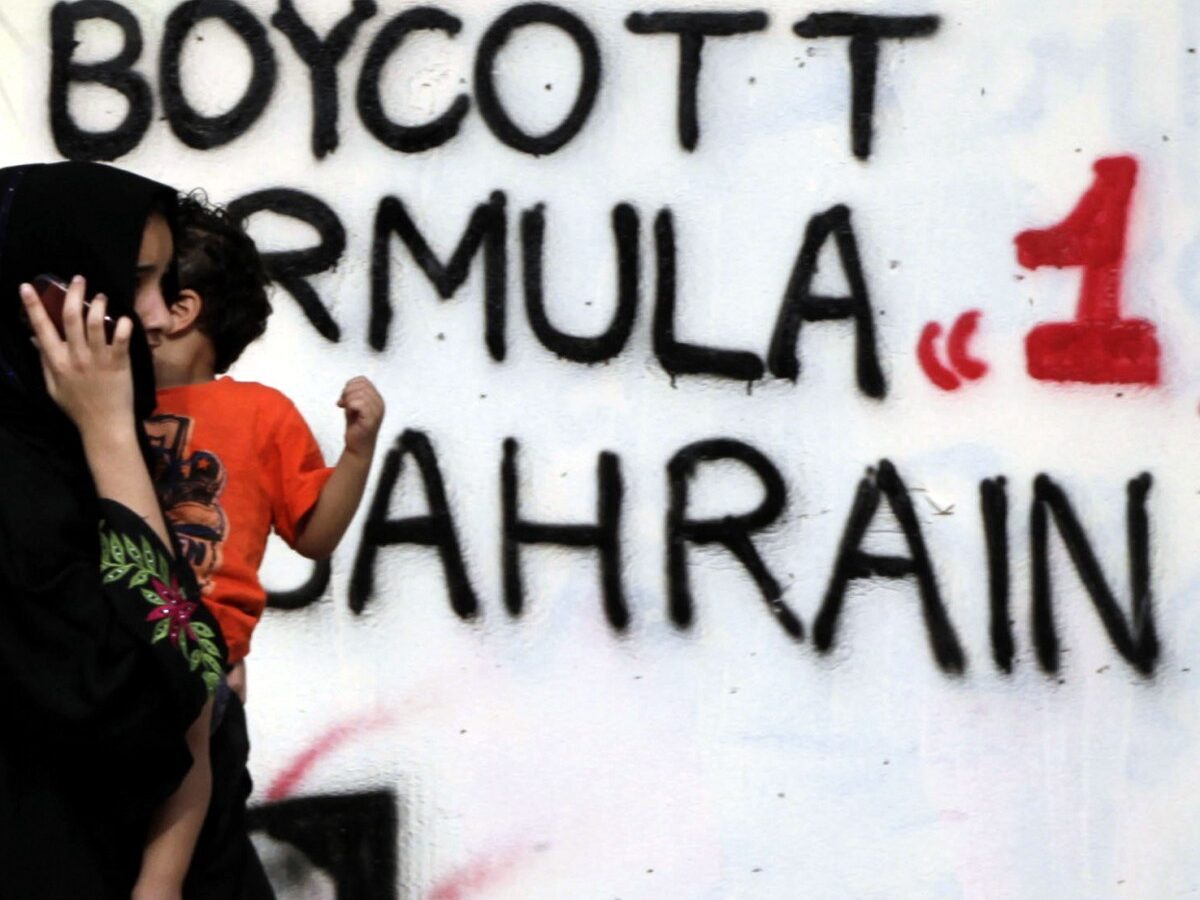
(NEW YORK) MintPress — It is not quite the same festive atmosphere that surrounds most Formula One events. In fact, the tiny Gulf kingdom of Bahrain is on edge ahead of Sunday’s Grand Prix as clashes between protesters and police heat up.
The race was called off last year amid a violent crackdown by the island nation’s Sunni Muslim leaders on an uprising by its Shiite majority, which claims it faces widespread discrimination and is prevented from holding key political and military posts. Nearly 50 people have been killed since the unrest began in February, 2011.
The last-minute decision to go ahead with the race this year was made last week after Formula One boss Bernie Ecclestone declared Bahrain safe.
In one protest march Thursday, security forces fired tear gas and stun grenades at hundreds of demonstrators, who chanted slogans against the F1 and held up banners for a jailed activist, Abdulhadi al-Khawaja, who has been on hunger strike for more than two months.
On Wednesday, protesters swarmed into a cultural exhibition that was part of the F1 events, setting off street battles and sending visitors running for cover. “Down, down Formula One,” some protesters shouted in the main market in Bahrain’s capital, Manama. Many shopkeepers closed their doors.
Earlier that day, dozens of people confronted Bahrain’s crown prince, Salman bin Hamad Al Khalifa, in a neighborhood that has been an opposition stronghold and yelled anti-government slogans.
Protesters have also held placards accusing Washington of ignoring their struggle while backing other reform movements in the Middle East. Bahrain is home to the U.S. Navy’s Fifth Fleet, one of the Pentagon’s main counterweights to Iran in the Gulf.
The Coalition of the Youth of the February 14 Revolution and other rights groups have said the protests will continue through the weekend.
Calls for cancellation
Human rights activists argue the race should be postponed until the government ends its abuses, enacts serious reforms and starts a dialogue with the opposition.
“The regime was isolated because of the crimes it committed, and the Bahrain Grand Prix is giving a way out for the government, especially the royal family,” said Nabeel Rajab, president of the Bahrain Center for Human Rights. “We need this regime to be punished for the crimes it has committed in the past year and a half.”
In the run-up to the decision, Bahrain hired Britain’s former Metropolitan Police chief John Yates, who is now living there, as a consultant. Yates wrote to Jean Todt, the head of the F1 administrative body, Federation International de l’Automobile (FIA), to say he felt “safer” living in Manama than he did in London, and he blamed the protests on a “criminal” minority.
But as Amnesty International said a few days ago, “The human rights crisis in Bahrain is not over.” It added, “Despite the authorities’ claims to the contrary, state violence against those who oppose the Al Khalifa family rule continues.”
Economic windfall
But none of that was enough to deter the F1 chief. “Bahrain has been very good to Formula One, so for this reason it’s hard to break ties,” said Caroline Reid of Formula Money, a London-based organization that monitors the industry.
Bahrain was the first Middle East country to welcome F1 in 2004, and the ruling family is a huge fan of the sport. The country’s sovereign wealth fund, Mumtalakat, owns 50 percent of leading team McLaren.
“It’s no doubt a money maker, otherwise it would be difficult to explain why Bernie Ecclestone would be so insistent on returning there,” said Sean Ennis, a professor of sports marketing at the University of Strathclyde in Scotland.
It’s all about the money for advertisers and broadcasters as well. The kingdom’s last race two years ago generated broadcast exposure worth $90.4 million to the brands involved in F1, 16% higher than each of the races held elsewhere in 2010.
It’s also a big boon to the local economy, which was hit hard by the unrest. It is the nation’s biggest sporting event and brought in about $500 million and 100,000 visitors in 2010. In addition, said Formula Money’s Reid, Bahrain has used the F1 to market the country to the rest of the world and associate it with “glamour, high technology and blue chip companies.”
Politics and sports
Human rights abuses on the ground has never kept the F1 away. The sport has held races in South Africa during apartheid and expanded to China despite that country’s abysmal rights record.
Indeed, Ecclestone has dismissed this week’s street violence in Bahrain as “a lot of kids having a go at the police.”
That caused many commentators to compare him to former English cricketer Mike Gatting, who in the late 1980s led a controversial tour of South Africa. When Gatting was asked about an anti-government riot, he replied, “There were a few people singing and dancing and that was it.”
As it turns out, they also had the last laugh. Johannesburg’s isolation in the sporting world eventually played a large role in overhauling the country’s political and social system. For now, leaders in Manama are not facing the same pressure.
Meanwhile, activists in Switzerland are calling on F! team Sauber to carry a pro-democracy sticker on its cars at Sunday’s race.. The The Group for a Switzerland Without an Army (GSoA) presented the Swiss team with 5-foot decals bearing the slogan “No Guns Against Voices” at its headquarters on Thursday.
Campaign spokesman Jonas Zuercher said Sauber could “make a sign” to the people of Bahrain.


